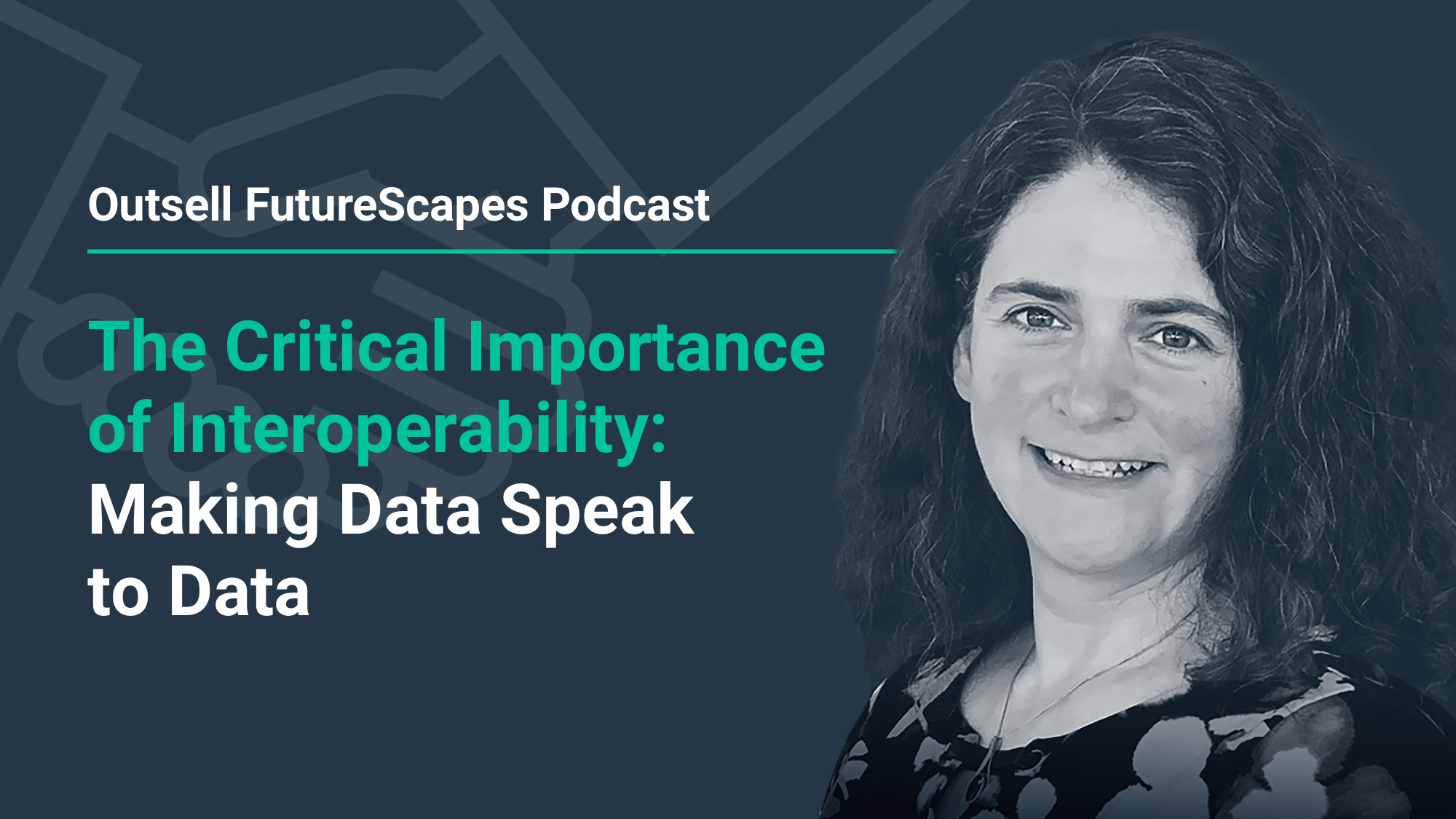
The Critical Importance of Interoperability: Making data speak to data
Rebecca Lawrence, F1000’s Managing Director, was delighted to join Outsell’s FutureScapes podcast with Outsell’s Chief Research Fellow, David Warlock, to discuss her recent Scholarly Kitchen article and explore further why making data speak to data matters so much.
‘A sharp elbow in the ribs’ is David’s description of Rebecca’s Scholarly Kitchen blog, reminding knowledge producers, whether in academia or business, about the importance of interoperability. In David’s view this is where the web began – asking how we were going to connect knowledge. This quest to connect belongs to every branch of knowledge, from development to the corporate environment.
Rebecca and David discuss the challenges and responsibilities of “linking it all together”, with Rebecca underlining the problems of collectively (research institutions, funders, publishers, governments, business) asking busy researchers for the same information over and over again, particularly with ever more mandated requirements to make research more findable and linkable.
While recognizing the administrative burden on researchers, the conversation also emphasizes why it is so important to be able to link, find, and understand research, for example giving a better view of what is happening with funded research and programs as outputs are tracked.
Rebecca and David also consider the fairness and ramifications for accessibility when creating metadata and identifiers, and probe how AI could be used to automate linkages, avoiding the “link rot days” experienced in the web’s early years. Rebecca makes the argument for AI doing the heavy lifting and taking the weight off, while allowing humans to engage with the critical job of checking information and data.
Pointing to huge, interlinked datasets and the ability of AI to spot patterns and linkages of information, Rebecca describes the work she has done as the only academic publisher contributing to the USA’s National Academy of Sciences, Engineering and Medicine committee report on Automated Research Workflows (ARWs). Rebecca argues that ARWs can capture all metadata and factors that may have affected the results of experiments, elements that may be very hard for individual researchers to pinpoint and recognize otherwise.
Critically, she argues interoperability and data speaking to data embeds transparency, trust and understanding into the production and sharing of knowledge and data, allowing human researchers to analyze and share knowledge in ways not previously possible. As David concludes, this trust and integrity is fundamental to all forms of data processing and production, from financial services to healthcare.
Listen and watch the full podcast here for Outsell subscribers: The critical importance of interoperability: Making data speak to data
